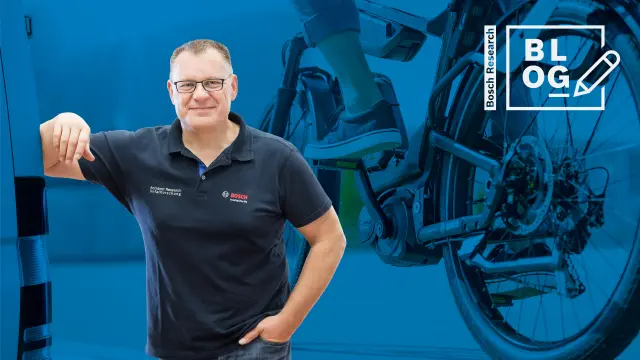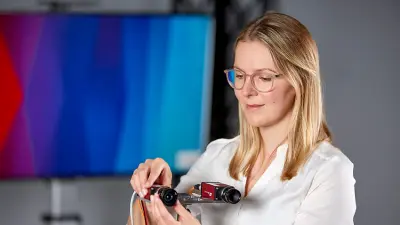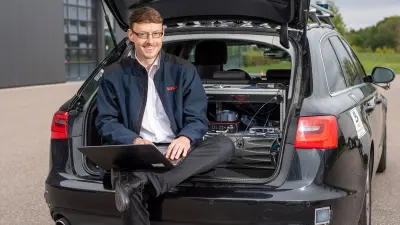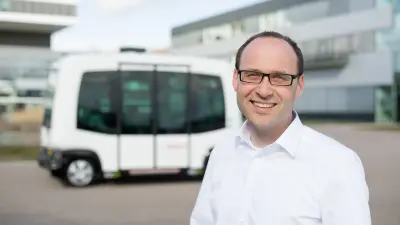Thomas Lich
Senior Expert and Team Leader Bosch Accident Research
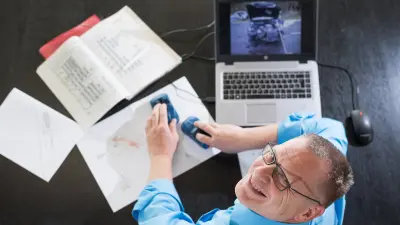
As senior expert and team leader in accident research, I carry the overall responsibility for Bosch accident research worldwide.
Using real-world traffic accidents as a basis, I derive the strategic goals for products of the Bosch business and regional units. In addition to my international activities, I also participate in committees and publicly funded projects.
My current research focus is the design of a simulation environment for evaluating automated driving functions. To do this, I build a link between data from traffic observations and conventional on-the-spot investigated crash data.
Please tell us what fascinates you most about research.
The fascination of research lies in taking new, previously untread paths. As a lateral thinker, the attraction lies in generating new ideas and demonstrating their feasibility by combining different fields of knowledge.
What makes the research done at Bosch so special?
Unlike vehicle manufacturers, at Bosch I can support the entire value chain, from the idea through design to product development. It takes patience and perseverance, but the result is all the more satisfying, as you can see its contribution to the final product. In addition, the research at Bosch enables me to collaborate in an international environment. This also forces me to take a different perspective in order to develop global solutions.
What research topics are you currently working on at Bosch?
I am responsible for worldwide accident research at Bosch, and this is the basis for new safety systems for all types of mobility. I have to cover various topics. On the one hand, I analyze, simulate, and evaluate real-traffic accidents. The aim is to support the regional product strategy and development. Both can be derived from the accident situation, from pedelecs to heavy commercial trucks. On the other hand, it is about interpreting the product and evaluating its effectiveness, e.g., which properties does a sensor need, or what a function must pay particular attention to so that e.g., the maximum number of accidents can be prevented. A prerequisite is to have an appropriate data source available. It may be that I initiate a project to investigate the accident on the spot and accompany the initial phase. This happens in India, China, and Brazil, or, as is currently the case, in the ASEAN region.
What are the biggest scientific challenges in your field of research?
Assessing the impact of automated driving on the traffic of the future. The root causes of an accident are very complex, because a huge range of factors come together. However, automation leads to a shift in accident causes, especially when conventional mobility meets automated driving vehicles. The impact on future traffic needs to be researched and reliably predicted. It is vital to combine new data sources, for example from traffic observations, with on-the-spot investigated crashes. The impact assessment is then carried out using traffic simulations. This is necessary because temporal effects can only be understood in this way.
How do the results of your research become part of solutions “Invented for life”?
I have been involved in improved side-impact protection in a car, motorbike stability control in the two-wheeler, and a system for collision avoidance in head-on crashes, for example. Furthermore, I have established accident research as a methodology in emerging countries. This enabled me to show how many crashes could be avoided and lives saved by various Bosch safety systems, in both industrialized countries and developing countries with their specific needs. Accident research thus supports the contribution “Invented for Life” makes to traffic safety.
Curriculum vitae
Since 2007
Accident Research: Analysis, evaluation and simulation of reconstructed real-world crashes by all types of vehicles. Take over team and project lead in 2011.
2004
Lateral velocity estimation: Series development of a lateral speed estimator for the improved release of restraint systems in the event of a side impact or a rollover operation in a passenger car (Combined Active and Passive Safety).
1999
Interior Occupant Classification: Series development becoming the world's first interior occupant classification system for adaptive triggering of passive restraint systems at Bosch.
1996
Tire pressure monitoring: Research and development for a tire pressure monitoring system of heavy commercial vehicles using neural networks at Daimler AG.
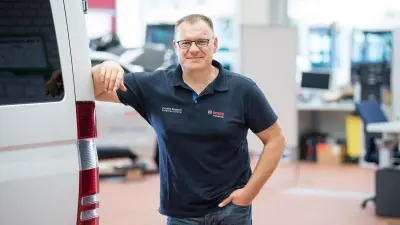
Selected publications

Sulzberger et al. (2019)
- Sulzberger L, Lich T., Schmidt D. Dr., Scheschko T.
- VDI safe.tech

Moennich et al. (2018)
- Moennich J., Lich T, Georgi A., Maier O. Dr.

Lich et al. (2018)
- Lich T., Mönnich J., Georgi A., Kumaresh G.
- 14th International Symposium and accompanying Exhibition on Sophisticated Car Safety Systems

Freienstein et al. (2017)
- Freienstein H. Dr., Lich T., Höpfner H. Dr., Drews F. Dr., Österle F. Dr., Klier W. Dr.
- VDI conference for vehicle safety
Get in touch with me
Thomas Lich
Senior Expert and Team Leader Bosch Accident Research
